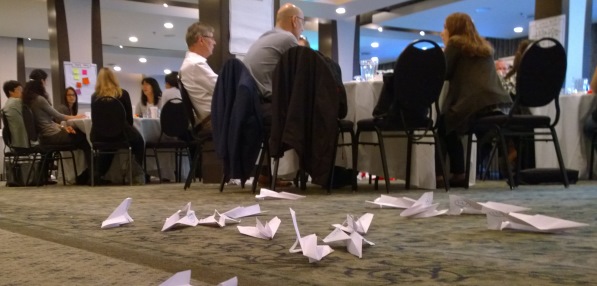Ideas take flight: Making sure our data serves us well
You might think it’s hard to get excited about data. You’d be wrong.
Who’s not going to get excited about improving the chances that the people we care for will have better outcomes – better health, better quality of life, even a longer life?
In the future, as a result of the Clinical & Systems Transformation (CST) project, we will have access to a much richer set of data. We’ll have data about care pathways; patient outcomes; busy periods and quiet periods; the types of health conditions that present most often in certain locations – the list goes on.
Data, on its own, is not much use. We need to analyze it, turn it into information, then understand the information and use it to make things better. The Decision Support and Performance Measurement and Reporting departments from VCH, PHSA and PHC know that the best way to do that is to work together.
At the moment, each health organization has its own data warehouses and analytics processes. Now, with the help of advice from expert clinicians and senior leadership, they are working together to design and build a shared data solution to get full value from the benefits of CST. The aim is to find the best way to export, store and transform health data for analytical use; and to share that best practice across each organization.
At a CST and Data Analytics Visioning Session on Oct. 22 and 23, they got together to make sure they were all working towards the same goals. At the session, the teams aligned their future analytics goals with the needs of clinicians, patients, and administrators; and shaped the analytics and reporting future for VCH, PHSA and PHC.
Joanne Lee, Senior Director, Informatics, Analytics and Strategic Transformation at BC Cancer Agency, said she felt privileged to attend the session.
“BC Cancer Agency has an extremely rich set of historical data, locked in an old legacy system that will be replaced by the new clinical information system,” she explained. “One of our greatest challenges has been the ease of access to this data to make effective decisions around clinical outcomes and cancer system planning. The workshop was a great opportunity to see how this can be realized, not only by replacing our legacy system, but by using this data in a meaningful way to make changes in the outcomes of cancer patients.
“The most exciting part of the day was speaking with a patient who participated in the visioning session. Talk about getting the ‘truth from the horse’s mouth’! It gave us a realistic perspective on what is important with respect to the information we need to make a difference in the care of our patients.”
And the paper aeroplanes in the photo above? They were part of an exercise to understand where bottlenecks can happen, and how it feels to be part of those bottlenecks. They also show it really is possible to have fun while working on data analytics.

